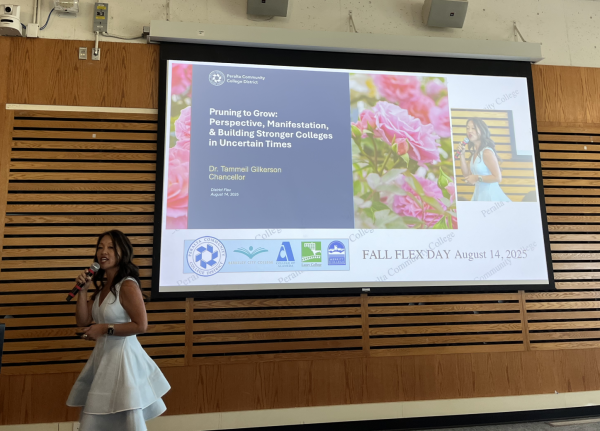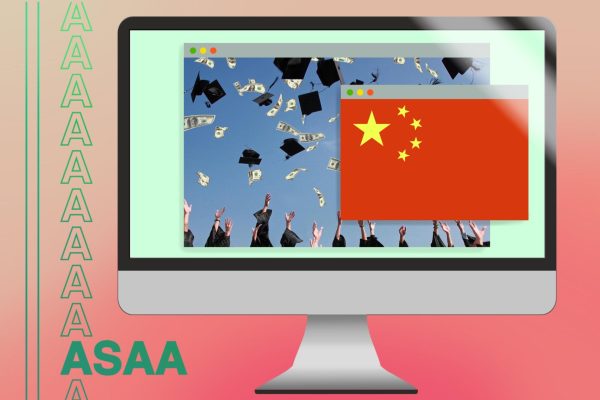Our Policies
The Citizen upholds itself to industry standards for professional journalism. These policies are adapted from the Society of Professional Journalists Code of Ethics, and from other professional newsrooms’ policies and standards.
Our staff members abide by the Society of Professional Journalists Code of Ethics to ensure that we remain unbiased, accountable, and transparent.
Corrections
The Citizen is committed to making prompt corrections of factual errors. To submit a factual correction for review, please email [email protected]. Please provide any evidence you have in the email including a link to the story you think needs a factual correction.
There are three categories of errors, requiring different responses:
- Typos (i.e. Perlata instead of Peralta): Misspellings and typos that do not otherwise affect the accuracy of the story can be fixed by editors. These fixes do not require a note.
- Minor factual errors: For minor errors that do not significantly alter the story, the correction will noted in italics at the bottom of the story. Minor corrections within 30 minutes of publishing do not need to be specially marked.
- Major errors: If a central fact in the story is inaccurate (i.e. story heavily cites a scientific study that is later debunked), The Citizen will publish a retraction.
Content removal
Once something is published by The Citizen, it is considered historical record and should not be altered, unless with a correction or critical update.
The Citizen’s policy is to never remove content from our website — including the names of sources, obtained with or without their consent — unless the information is later proven false or puts someone in danger by remaining on our site. The removal of content should be addressed on a case-by-case basis, and full authority lies with the current editor-in-chief.
Conflicts of Interest
Staff members avoid conflicts of interest, real or perceived. Staff members may not write about or contribute reporting on:
- matters that they’ve been a political advocate for
- causes or movements they’ve taken part in
- organizations that that they’re a member of
- individuals that they harbor a close personal relationship to, such as friends and family members
- issues they have extremely strong views on, to the point that they are unable to write impartially
Staff members discuss with all actual, potential, or perceived conflicts of interest with editorial leadership.
Gifts & Donations
Staff members should refuse gifts, favors, fees, free travel and special treatment. Unsolicited gifts are donated or returned.
We accept donations for the general support of our newsroom activities. All donated funds are managed through the Peralta Colleges Foundation.
Editorial Independence
The Citizen retains full authority over our editorial content to protect our journalistic integrity. Sources of revenue do not have a say in what we cover or how we cover it. Acceptance of financial support does not constitute implied or actual endorsement of donors or their products, services or opinions.
Staff members should protect the editorial independence of the publication. Do not promise sources prior review of any Citizen content. Never allow sources to edit content. In extremely sensitive cases, where the subject of a story may face significant harm, consult with editorial management.
Anonymous sources
We accept anonymous tips via The Citizen SecureLeak portal. In addition to our newsroom’s commitments to the privacy and security of such sources, there are legal protections that prevent journalists from being compelled to reveal their confidential sources.
We follow The Society of Professional Journalists guidance on the use of anonymous sources to upload the credibility of our publication. Staff members identify sources when feasible, and reserve anonymity for sources who may face danger, retribution or other harm.
Anonymity is only granted when:
- 1) the source has a reasonable basis to fear retaliation or other adverse consequences from speaking out
- 2) the information the source will convey is significant, AND
- 3) there is no other way to obtain it.
Never allow a source to use the cloak of anonymity to disparage others or to express political opinions.
Full authority for granting anonymity lies with the editor-in-chief. If anonymity is granted, we explain the reason in the article. Staff members use every avenue possible to independently verify and attribute information received from an anonymous source.
AI usage
Because it is impossible to verify the originality of AI-generated work, the use of generative algorithms is expressly forbidden in all aspects of our publication’s research, writing and other content creation. All images that accompany our reporting must be human-created works, either original or used with permission by the image’s creator. If a published work is found to contain AI-generated content, it may be subject to removal.
Copyright and Permissions
By signing up for this class, the student grants The Citizen permission in perpetuity to use material produced for this class in print, on its website, in social media, or to promote the student news media or the journalism program. This includes material created for this class but not published during the course of the semester. Unless the editor-in-chief consents, all material produced for this class will appear in The Citizen before any other publication. Students retain copyright to their work and the right to sell their work after it has appeared in The Citizen or, in the case of unpublished material, after the end of the semester.
Privacy Policy
Comments
When visitors leave comments on the site we collect the data shown in the comments form, and also the visitor’s IP address and browser user agent string to help spam detection.
An anonymized string created from your email address (also called a hash) may be provided to the Gravatar service to see if you are using it. The Gravatar service privacy policy is available here: https://automattic.com/privacy/. After approval of your comment, your profile picture is visible to the public in the context of your comment.
Media
If you upload images to the website, you should avoid uploading images with embedded location data (EXIF GPS) included. Visitors to the website can download and extract any location data from images on the website.
Cookies
If you leave a comment on our site you may opt-in to saving your name, email address and website in cookies. These are for your convenience so that you do not have to fill in your details again when you leave another comment. These cookies will last for one year.
If you visit our login page, we will set a temporary cookie to determine if your browser accepts cookies. This cookie contains no personal data and is discarded when you close your browser.
When you log in, we will also set up several cookies to save your login information and your screen display choices. Login cookies last for two days, and screen options cookies last for a year. If you select “Remember Me”, your login will persist for two weeks. If you log out of your account, the login cookies will be removed.
If you edit or publish an article, an additional cookie will be saved in your browser. This cookie includes no personal data and simply indicates the post ID of the article you just edited. It expires after 1 day.
Embedded content from other websites
Articles on this site may include embedded content (e.g. videos, images, articles, etc.). Embedded content from other websites behaves in the exact same way as if the visitor has visited the other website.
These websites may collect data about you, use cookies, embed additional third-party tracking, and monitor your interaction with that embedded content, including tracking your interaction with the embedded content if you have an account and are logged in to that website.
Who we share your data with
If you request a password reset, your IP address will be included in the reset email.
How long we retain your data
If you leave a comment, the comment and its metadata are retained indefinitely. This is so we can recognize and approve any follow-up comments automatically instead of holding them in a moderation queue.
For users that register on our website (if any), we also store the personal information they provide in their user profile. All users can see, edit, or delete their personal information at any time (except they cannot change their username). Website administrators can also see and edit that information.
What rights you have over your data
If you have an account on this site, or have left comments, you can request to receive an exported file of the personal data we hold about you, including any data you have provided to us. You can also request that we erase any personal data we hold about you. This does not include any data we are obliged to keep for administrative, legal, or security purposes.
Where your data is sent
Visitor comments may be checked through an automated spam detection service.































